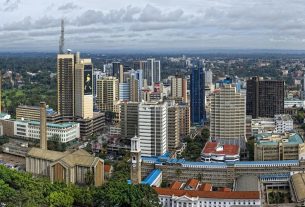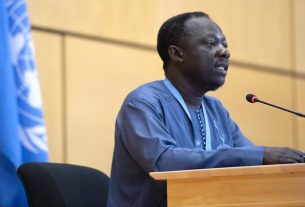Columbia University’s interim President Katrina Armstrong apologized on Tuesday to those who were “hurt” during police sweeps of pro-Palestinian encampments in April, the Columbia Spectator reported on Thursday.
“Instead of apologizing to the antisemitic protesters, [Armstrong] should be apologizing to the Jewish students for failing to protect them from relentless discrimination and harassment,” student Maya Cukierman, 19, told The New York Post.
“Dr. Armstrong gave a wide-ranging interview with the student newspaper that in part focused on the impact of the past year, and just as she has as done while speaking to many groups across our campus, she recognized their pain and reiterated how sorry she is to all students who are hurting,” a spokesperson told the Post. “She remains committed to ensuring everyone at the university feels safe and respected as we rebuild and heal this year.
Pro-Palestinian action at Columbia
Columbia University has seen students call for Tel Aviv to be burnt to the ground, and individual protesters praise Hamas figures.
“The police department then sent resources to Columbia per the University’s request and were brought onto the campus after numerous warnings were given and attempts made to disperse the crowd, the individuals still refused to leave,” NYPD commissioner Edward Caban said. “At that point, based on the University’s wishes to clear the South Lawn, which, again, is University property, arrests were made for trespass.”
Columbia settled on a lawsuit in June, brought forward by Jewish students claiming that they were facing a hostile environment as a result of actions made by pro-Palestinian groups on campus. As part of the settlement, Columbia has promised to provide walking escorts, safe campus entrances at all hours of the day, and accommodations for students who could not complete exams owing to campus disruption.




